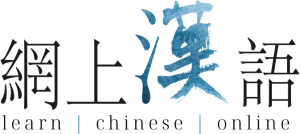Grammar 5
Numbers
You learned numbers from 0 to 10 in the vocabulary. This is quite easy apart from the writing of zero: 零 líng but it can also be written 〇, which is simpler, but less traditional. In the HSK level tests, the zero is written 零, so it must be mastered in this form.
The Chinese also use (and quite often do) Hindu-Arabic numerals. But we must know the Chinese numbers that are also commonly used.
For contracts, checks (rarely used in China) and other official documents, more complicated Chinese characters are used for numbers, otherwise it would be easy to turn "one" 一 into "three" 三! But this is not in the Level 1 program.
After 10, the sequence is quite logical:
11 十一
12 十二
13 十三
...
19 十九
Then:
20 二十
21 二十一
22 二十二
etc.
It is very easy and there is nothing special to it except that it is not necessary to add "one" from 10 to 19: 一十, 一十一, etc.
It is not in the HSK level 1 program to learn numbers beyond 99.
The date
Unlike English or French, the date is built from the most general to the most precise:
Year + month + days of the month + day of the week
The year is constructed by enumerating the digits before the word "year" 年 nián :
Thus, 2012 is written 二零一二年 èr líng yí èr nián. So we say "year two, zero, one, two". We must not say twenty twelve or two thousand twelve.
Months are constructed by putting the number before the word "month" 月 yuè :
january: 一月 yí yuè (note the change of tone of yī, see phonetics)
february:
二月 èr yuè
march:
三月 sān yuè
...
october
十月 shí yuè
november
十一月 shí yí yuè
december
十二月 shí èr yuè
Only the year is constructed by listing the figures.
April 1998 is therefore: 一九九八年四月.
The day of the month is constructed by putting the number before the word "day" 日 rì.
Please note that the word 天 tiān, "day" indicates the duration (in a phrase such as "three days of vacation" for example).
Thus the first day of the month will be said: 一日 yí rì, the second 二日 èr rì, the thirtieth 三十日 sān shí rì; the thirty-first 三十一日 sān shí yí rì, etc.
December 21, 2012 is therefore written: 二零一二年十二月二十一日
In Chinese, the word week is called 星期 xīngqī (literally "period of stars"). The day is built by adding the number AFTER the word week 星期:
- monday
星期一 xīngqī yī
- tuesday
星期二 xīngqī èr
- wednesday
星期三 xīngqī sān
- thursday
星期四 xīngqī sì
- friday
星期五 xīngqī wǔ
- saturday
星期六 xīngqī liù
The word "Sunday" is special and is either 星期天 xīngqī tiān (day of heaven) or 星期日 xīngqī rì (day of the sun).
Yes, the week is not of Chinese tradition, but Judeo-Christian. The Chinese calendar is a lunar calendar. It is still widely used for traditional festivals and birthdays. For work and administration, our "solar" calendar is used.
To ask for the date, two questions are possible:
今天的日期是什么? Jīntiān de rìqī shì shénme ?
or
今天几月几日? Jīntiān jǐ yuè jǐ rì ?
(for the short form)
今天几年几月几日星期几? Jīntiān jǐ nián jǐ yuè jǐ rì xīngqī jǐ ?
(for the long form)
To ask for the anniversary date, you will say:
你的生日是几月几日? Nǐ de shēngrì shì jǐ yuè jǐ rì ?
And the answer:
我的生日是三月二十一日。 Wǒ de shēngrì shì sān yuè èrshíyí rì. :
My birthday is on 21 March.
The age
The adjectival verb 大 dà can be translated as "to be big" in the sense of size and age (old).
中国很大。
China is very big.
大人
The adults.
Please note: "to be old" is 老 lǎo.
In Chinese, the word "to be numerous" (many) 多 duō can also be translated as "how much?" when it is before an adjectival verb:
中国人很多。
The Chinese are numerous.
你多大?
How old are you ? (Literally: "How much old are you?")
This use of the verb 多 makes it possible to ask questions that are difficult to translate into French or English, but do exist in Chinese:
她多美?
"How much pretty is she?"
他多好?
"How much nice is he?"
etc.
The answer to the question "How old are you?" 你多大? is built without a verb:
Subject + number + 岁.
Example: "I am 17 years old": 我十七岁。 Wǒ shíqī suì.
岁 suì is used only for years of age.
When speaking to a child, we can also say
你几岁? Nǐ jǐ suì ?
In fact, the interrogative word "how much?" 几 jǐ is used when the response is estimated to be less than 10 (approximately). For an answer greater than ten, there is another interrogative word that is constructed with 多 duō. But we will see this in more detail in another lesson.
的 and the subordinate clause.
We have seen in the grammar of Lesson 3 that 的 is used show the relationship between ‘possessors’ and ‘possessed’.
的 is also used to construct the subordinate clause (placed in an inverted position compared to English or French):
- 学中文的学生
the students who learn Chinese
- 住北京的中国人
the Chinese who live in Beijing
